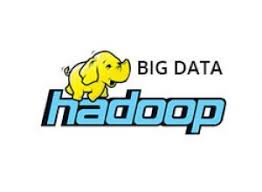- 48-49, 3rd floor, Jai Ambey Nagar, Opp. Jaipur Hospital, Tonk Rd, Jaipur
- (+91) 8094336633, (+91) 9057015701
- careers@zeetronnetworks.com
Big Data & Hadoop Training in Jaipur
-

Big Data & Hadoop
Hadoop Development course teaches the skill set required for the learners how to setup Hadoop Cluster, how to store Big Data using Hadoop (HDFS) and how to process/analyze the Big Data using Map-Reduce Programming or by using other Hadoop ecosystem. Attend the Hadoop Training demo by Real-Time Expert.
Hadoop is an Apache open-source framework written in Java that allows distributed processing of large data sets across clusters of computers using simple programming models. A Hadoop frame-worked application works in an environment that provides distributed storage and computation across clusters of computers. Hadoop is designed to scale up from a single server to thousands of machines, each offering local computation and storage.
-
LEARNING OUTCOMES
- Gain in-depth knowledge of Big Data and Hadoop & its ecosystem
- Master real-time data processing using various tools
- Become expert in working on data, and managing data resources
- Become a functional programmer implementing various applications to ensure effective data processing and optimization techniques are in place
- Expert knowledge to apply interactive algorithms and work on data forms
- Exhibit capability to ingest and analyze large data-sets
- Recommend solutions based on analysis done
Who Can Learn This Course?
- Freshers
- BE / BSc Candidate
- Any Graduate
- Any Post-Graduate
- Working Professionals
Why learn big data handling with the help of Hadoop?
People who wish to build a career in big data handling, must learn Hadoop, which is one of the most popular tools known today for processing big data. And to learn the nuts and bolts of this software framework, you must take Big Data Hadoop coaching classes. There are numerous benefits of learning this software tool, some of which have been dished out here-
- The first and most important aspect to consider is that Hadoop yields scalable results. Nodes of new data can be incorporated into the computer cluster whenever such a need arises. And the good news is- this can be done without any data format change or modification in the process of loading.
- Hadoop is extremely cost-effective. With Hadoop, large volumes of data can be stored on huge computer clusters. As a result of which, the price per terabyte of storage gets reduced considerably. So, modeling all your data becomes incredibly affordable with Hadoop.
- Hadoop also offers amazing flexibility. It allows data of different types and from different sources to be joined or aggregated, which in turn enables a deeper analysis of the same.
- Hadoop helps businesses in their day-to-day operations.
- It also helps generate new product ideas.
- Companies also use it to carry out marketing analysis apart from conducting research and development.
- Processing text and images become easy.
- It makes the entire data handling business agile.
- Network monitoring has been made feasible by Hadoop.
- Hadoop paves your way to a successful career.
Why is Hadoop important?
- It can easily and quickly save the store and process a good amount of data. It is a matter to consider as the data volumes and varieties are constantly increasing due to the Internet of Things and Social Media.
- It possesses great computing power. The distributed computing model of Hadoop can process Big Data in less amount of time. We tend to get more processing power by using more computing nodes.
- It is flexible enough to allow you to store and use as much data you need without preprocessing. This data includes text, images, and videos.
- It is economic. This open-source framework is cost-effective as it uses commodity hardware to store a huge number of data.
- It also offers scalability. We can easily process our system to handle more data by adding nodes, but it requires a little administration.
What is Big Data Hadoop?
Big data is a word used to indicate large volumes of data- both structured and unstructured. More often than not, these data sets are so large that they either belittle the current data processing capacity of an enterprise or move too fast to be handled by ordinary data handling tools.
Big data facilitates companies in bettering their operations and make speedy and more pertinent decisions. Big data, when formatted, maneuvered, stored, captured and examined properly, can help companies multiply their revenues. Not just that, with big data, companies can improve their functioning in addition to attracting new customers while retaining the existing ones.
As a matter of fact, handling big data becomes considerably easy with the Hadoop framework. In fact, Hadoop has changed the way big data, especially the unstructured lot, is handled. Hadoop helps streamline excess data for any distributed processing system over computer clusters with the use of programming models that are out-and-out simplistic in nature.
Big data Hadoop is an open-source software framework that is used for running applications and storing data on clusters of commodity hardware. Hadoop offers a powerful processing ability with vast storage of data. It is also able to manage virtually limitless concurrent tasks or jobs.
